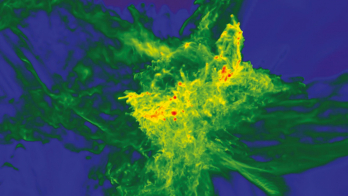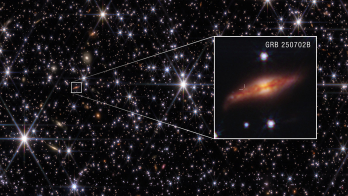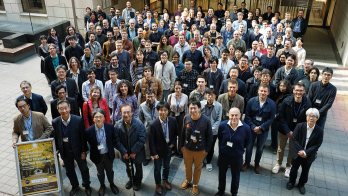Two recent talks at CERN focused on the problems of a voyage to Mars, where novel propulsion techniques are called for to overcome the logistical problems of otherwise having to construct huge space vehicles and for astronauts to spend over a year in space.

On 27 August, 1984 Nobel Physics laureate and former CERN Director General Carlo Rubbia (right) described how his recently completed TARC experiment at CERN suggests how it is possible to confine neutrons as “black body radiation”. Rubbia’s fertile mind sees how surrounding such an “n-Hohlraum” cavity by a micro-layer of americium could quickly go critical, the fission fragments acting as a very-high-energy exhaust, attaining temperatures much higher than those of chemical fuels. Such a motor would also have no moving parts. In this way, a few kilograms of nuclear fuel could be sufficient to power a substantial space vehicle.
The TARC experiment was a neutron study en route to Rubbia’s proposed Energy Amplifier, which would use beams from a particle accelerator to produce spallation neutrons and in turn feed a target-moderator assembly. The TARC study demonstrated how the neutrons could “scavenge” the target-moderator assembly, eating up nuclear waste.

On 3 August NASA astronaut Franklin Chang-Diaz, mission specialist on the recent Space Shuttle flight carrying the Alpha Magnetic Spectrometer , described the 236-hour voyage, which was also the final docking between a Space Shuttle and the Russian Mir space station. Chang-Diaz, an accomplished plasma physicist, is also Director of the Advanced Space Propulsion Laboratory at the Johnson Space Center. He concluded his talk by describing ongoing development work for rocket propulsion systems using magnetically confined high-temperature plasmas, the ultimate objective being to sustain flight to Mars. The picture shows him arriving at Kennedy Space Center for a Terminal Countdown Demonstration Test.







